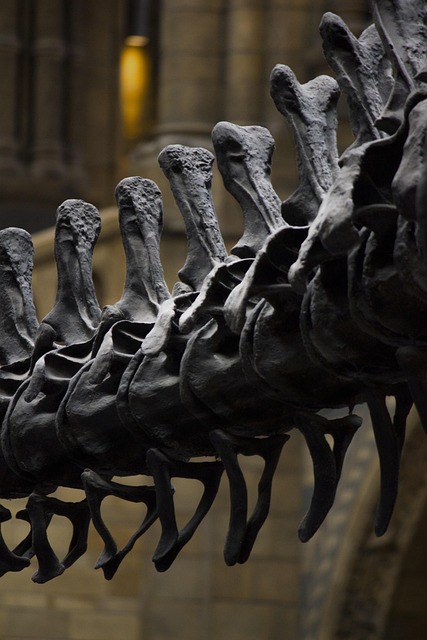Nestled in Oregon's Willamette Valley, Eugene's history as a crucial stop on the Oregon Trail from 1846 led to its development as a bustling hub for pioneers seeking fertile soil and resources. The diverse population intermingled, fostering a vibrant cultural exchange that shaped Eugene's unique identity. This historical role continues to define Eugene's cultural evolution, making it a vital center for understanding the Oregon Trail through its rich history, cultural offerings, and preservation efforts.
“Eugene, nestled along the scenic Willamette River, played a pivotal role in Oregon’s history, especially during the heyday of the Oregon Trail. This article delves into Eugene’s early years and its indelible impact on the trail, exploring how it evolved from a humble settlement to a bustling hub of culture and trade. We examine the cultural exchange that enriched the region and the technological advancements that shaped its development. Additionally, we uncover the legacy of Eugene’s past and its modern significance in Oregon Trail studies, highlighting the city’s continuous evolution as a testament to resilience and innovation.”
- Eugene's Early History and Its Impact on the Oregon Trail
- Cultural Exchange Along the Trail: Eugene as a Hub
- The Role of Technology and Trade in Shaping Eugene's Evolution
- Legacy and Modern Significance: Eugene's Continued Influence on Oregon Trail Studies
Eugene's Early History and Its Impact on the Oregon Trail

Eugene, nestled in the heart of Oregon’s Willamette Valley, has a rich history that deeply influences its role along the Oregon Trail. Founded in 1846, the city emerged as a pivotal stop for pioneers embarking on the treacherous journey to the West Coast. The region’s fertile soil and abundant natural resources attracted settlers, setting the stage for Eugene’s cultural evolution. As a bustling hub, it facilitated trade, provided respite for travelers, and became a launching point for further exploration into the untamed Oregon wilderness.
The early history of Eugene is characterized by its diverse population, including Native American tribes who had long inhabited the area. The city’s cultural tapestry was woven with influences from various European settlers, many of whom were attracted by the promise of agricultural prosperity. This unique blend of cultures left an indelible mark on Eugene, shaping its identity and contributing to its status as a vibrant stop along the Oregon Trail.
Cultural Exchange Along the Trail: Eugene as a Hub

Eugene, Oregon played a pivotal role in the cultural exchange that occurred along the historic Oregon Trail. As a major hub and rest stop for pioneers and migrants, the city became a melting pot of diverse cultures, languages, and traditions. Travelers from various backgrounds—Scots-Irish, English, German, French, Native American—interacted with each other and the local Native Hawaiian and Native American communities, facilitating an incredible cultural exchange. This dynamic interplay shaped Eugene’s cultural evolution, leaving a lasting impact on its identity.
The trailblazers who passed through Eugene brought with them not only goods and ideas but also stories, music, food, and customs from their homelands. These encounters broke down barriers and fostered understanding between different groups. Over time, the city incorporated elements from these diverse cultures, creating a unique blend that set it apart from other Oregon communities. This cultural diversity continues to thrive in Eugene today, reflecting its rich heritage as a key stop along the Oregon Trail.
The Role of Technology and Trade in Shaping Eugene's Evolution

The evolution of Eugene, Oregon, is deeply intertwined with its strategic location along the historic Oregon Trail and its subsequent role in facilitating technology and trade. As a major stopover point for pioneers traveling west, Eugene became a bustling hub where cultural exchanges flourished. The trail brought not only settlers but also diverse goods, ideas, and customs, profoundly shaping the town’s identity. This constant flow of people and resources accelerated the region’s cultural evolution, transforming Eugene from a small settlement into a vibrant community with unique characteristics.
Trade along the Oregon Trail not only supported the growing population but also exposed Eugene to innovative technologies and economic opportunities. The trail served as a vital link to the outside world, enabling the exchange of agricultural products, craftsmanship, and knowledge. This interaction fostered an environment conducive to innovation, where settlers could adapt and adopt new tools and techniques, contributing to the city’s ongoing metamorphosis and solidifying its place in Oregon history.
Legacy and Modern Significance: Eugene's Continued Influence on Oregon Trail Studies

Eugene, with its rich history and vibrant cultural evolution, plays a significant role in understanding the Oregon Trail. The city’s legacy extends beyond its early settlement days; it has become a hub for researchers, historians, and enthusiasts alike, who study and interpret the trail’s impact on the region. Modern significance lies in Eugene’s ability to preserve and share this chapter of American history.
The cultural offerings of Eugene—its museums, archives, and community events—all contribute to keeping the Oregon Trail story alive. These institutions facilitate a deeper understanding of the trail’s role in migration, settlement, and cultural exchange. By preserving and interpreting these historical accounts, Eugene ensures that the Oregon Trail remains an essential part of the region’s identity, offering valuable insights into our shared past.
